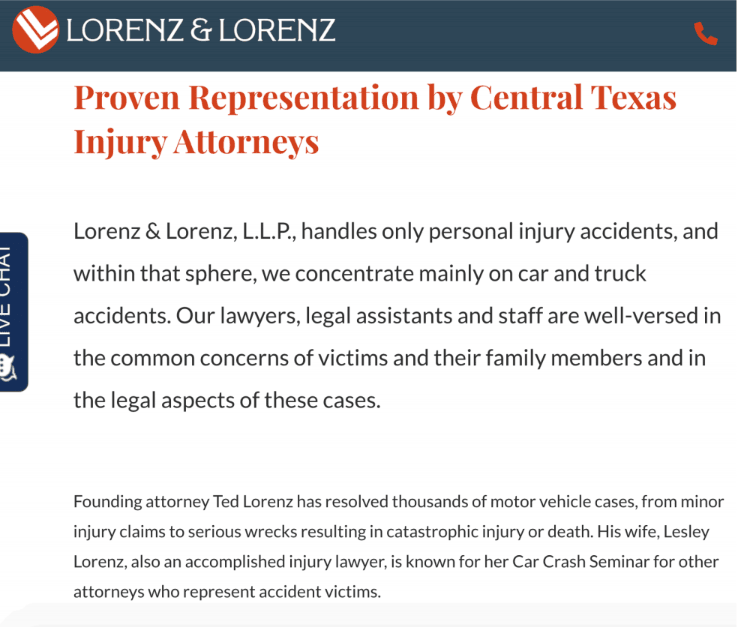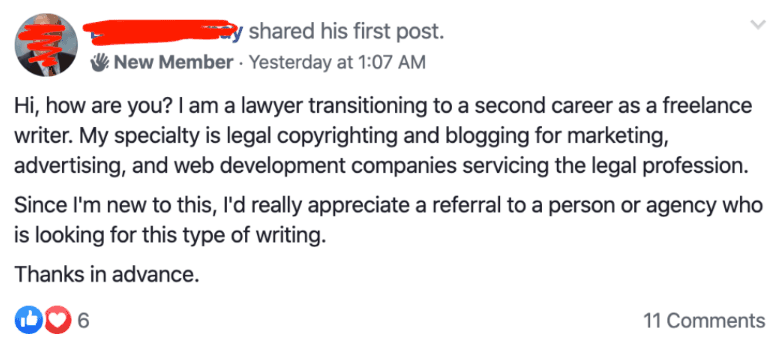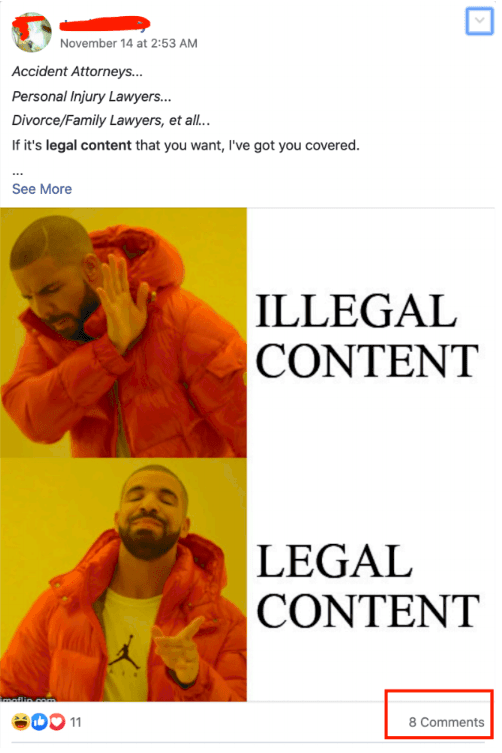Tired of your current corporate job? Do you want to work in a thriving industry that caters to creatives, techies, and analytical thinkers?
A career in digital marketing might be a good option for you.
Digital Marketing and the Income Opportunities it Presents
Digital marketing includes the wide gamut of ads you see on websites, social networks, emails, and apps.
It also includes informative content not normally associated with marketing, such as blog posts, infographics, and case studies too. The businesses and websites that appear on top of Google’s search results when you search for information use digital marketing, too.
Almost any content or marketing tactic that connects businesses to their target customers via digital channels can be considered digital marketing.
You have lots of job options and the salary varies widely too. Listed below are the typical salaries for some digital marketing positions in the United States, based on Paysa:
- Website Designer: $55,150
- Pay-Per-Click Specialist: $101,945
- Copywriter: $68,618
- SEO: $69,062
- Social Media Manager: $68,553
What You Need to Do to Start a Career in the Digital Marketing Industry
1. Learn the Industry
Like every beginner, it’s helpful to learn how the industry works if you want to get a job in it. When I say learn, I don’t mean that you have to be an expert or that you need a huge portfolio to get a job.
At minimum, it’s helpful to learn the basics of your chosen field. The goal here is to not sound clueless when you start reaching out to prospects and potential employers.
Don’t worry about your educational background, even people who don’t have a degree in marketing or digital media can get a job in this industry. I studied Hospitality Management in College but here I am working as a writer.
Below is a list of specialties where you can find work as a digital marketer:
- Content Marketing
- Social Media Marketing
- Search Engine Optimization (SEO)
- Lead Generation
- Website Design
- Project Management
- Sales Funnel Building
- Website Analytics
- Pay Per Click (PPC) Ads
This list is by no means complete, but if you research each item that should give you an idea which specialty suits your skills and background. For instance, as a business administration graduate, your skills may be fit for a role in project management.
Those with a background in design or digital media can work as website designers or UX designers.
Not sure where to start or how to pick a specialty? Study these guides to get a feel of the work required for different digital marketing roles:
- Social Media 101 Email Course by Buffer
- Free Copywriting Course by Neville Medhora
- Graphic Design Course by Hubspot
- Hubspot Inbound Marketing Certification
- SEO Training Course by Moz
- The Definitive Guide to Growth Hacking by Neil Patel
Learning the foundation of each field will help you decide if you like what the job entails. Some of these courses will even give you tasks or mini projects to complete.
Invest the time into doing these activities well, because these projects will serve as the starting ground of your budding portfolio.
2. Build a Portfolio and Resume
Don’t let lack of a paying client stop you from applying what you’ve learned from the guides above.
You can create a website and a Facebook page for yourself, and then improve your social media profiles on LinkedIn and Instagram while you’re at it. Doing this will give your profiles a more professional look, and increase your page’s engagement rate, which you can then use as proof to show potential clients.
Unless your profile or website has thousands of followers, some companies prefer a portfolio that isn’t for yourself. They want to see what you’ve done for others.
To counter this, one strategy you can try is Austin's Value Validation Project. With this strategy, you don’t have to wait for anyone to give you a shot. Just pick a company you want to work with, research their problems, and then create a mini project that shows how you can solve said problem.
This is the best approach if you have a target company in mind. It’s important you create a project the company actually cares about, otherwise you’re just wasting your
time. Read up on the company’s press releases, financial statements, listen to podcasts, and survey their customers.
Terry, one of the people featured in Austin's article on validation projects, surveyed regular Uber riders to create the presentation deck he used to get hired. Cam researched complaints of AirBnb users via Facebook and Twitter.
Whatever research method you use, make sure you focus on the right angle for your project.
If you’re looking to improve sales or user experience, your research should start at the customers. But if you’re focused on the decision makers or hiring commiiee, you should find out about their goals for your target position.
Otherwise, you can offer your services to friends and business owners, and use the completed project in your portfolio. These don’t have to be big jobs, sometimes it can be as easy as designing a simple logo, starting a Facebook page, or writing the “about” page for a website in exchange for a testimonial or small fee.
Below is an example of a simple about page to give you an idea. In my experience, tasks like these won’t take more than a day to finish.
As for your resume, you’ll find almost everything you need to write it in this comprehensive guide.
3. Reach out to Your Network
Not sure how to go about building your portfolio through side projects? Start with your network.
John Pagulayan, Founder of The Freelance Movement Tribe (and my awesome mentor), taught thousands of freelancers to prospect for jobs by sending a similar message to their network:
Hi [Name],
How are you? It’s been a while since [when you last met… or come up with another way to establish rapport].
I’m taking my career in a new direction, and now starting my path as a [target job].
Would you know someone in need of [the service you offer]?
Send this message to your friends, family, old co-workers, or previous boss via LinkedIn, Facebook, or email.
If no one replies, send a follow-up message. Say that you’re willing to work for free in exchange for a testimonial, or a discounted rate. You can even offer a referral fee to people who will connect you to paying clients.
Austin Belcak, for example, had no experience in sales before he landed his sales job at Microsoft. To gain experience, he networked with real estate agents and offered to give them cheap, high quality leads.
Did he have any experience in real estate or sales?
No.
But he used what he knew and he learned along the way. Six months later, all the properties he advertised were sold at less than one-third of an agent’s commission on one property.
He learned a new skill, beefed up his professional history, and helped a realtor make money. It’s amazing what grit and desire to learn can do.
The good thing about this strategy is that it’s not just for getting a one off side gig. Several members of Pagulayan’s community have landed paid work following this strategy — many of them without any experience or existing portfolio.
The secret? Show people that you genuinely want to help their business.
Yes, you want a job and samples to beef up your portfolio. But the people you contact have their own goals and problems. You’re not going to get a good response if you sound like other applicants just looking for a paycheck.
Present yourself as a trusted advisor instead. Don’t wait to get hired before you offer suggestions on how they can improve their sales, marketing, or customer service.
Watch Jay Abraham’s lesson on the Strategy of Preeminence for more details on this philosophy.
It’s contrary to how many job seekers think and that’s exactly why it works.
It helps you stand out from applicants who rely on resumes and job boards. The goal is to show potential employers that you can help their business, well before they request for an interview or your resume.
4. Pick a Market or Niche
You might balk at the thought of choosing a specific niche, thinking it would limit your career prospects. That’s certainly how I felt when I started in this industry.
I wrote about automatic gates, mortgages, real estate, careers, eCommerce, life insurance, SEO, and a bunch of other topics.
At first, it felt great to show potential employers that I can write on just about anything.
A few years in, I saw a job post for personal finance writers. They wanted someone with a good portfolio and at least 2 years of experience.
I had the required years of experience and some samples to boot. But I didn’t get the job because my articles weren’t high-level and detailed enough for their audience.
Had I focused on a niche before then, I could’ve had better samples to present with my application.
Specializing isn’t limited to the subject you work on. Designers, for example, can specialize in logos, websites, graphics, and even in designing Shopify stores.
Even if you specialize in website design, you still need to learn as color theory, graphic design, prototyping, and visual hierarchy. That doesn’t even include the technical skills you’ll need like WordPress, Adobe, CSS, and HTML.
That’s why it’s easier to pick one or two related skills and build your career around it.
So how do you pick a market?
Consider the following:
- What topics or skills are you good at?
- What are you passionate about?
- Which of these topics and skills pay good money?
- Can you easily reach out to potential employers in this market?
Lawyers, for instance, can easily transition into digital marketing as content writers. In a copywriting Facebook group I belong to, this lawyer got multiple inquiries by posting about his goal of becoming a legal copywriter.
In the same way, fitness trainers and diet enthusiasts can find work as social media managers for health and fitness brands.
But what if you’re interested in one market but don’t have prior exposure to them?
Here’s one journalist who got eight people interested in working with him by posting a clever status update on a Facebook job board.
Was he a lawyer? No. But because he specifically chose to work with accident and divorce attorneys, he got three inquiries from lawyers practicing in those fields.
Personally, I’ve written content on this topic for lawyers and legal marketing companies before. Some of the topics aren’t so technical so all you need is patience and good research skills.
I know from experience you don’t need to pass the bar or even be subject to the same laws to write well on the subject.
On that note, don’t be afraid of getting this step wrong. This isn’t a do or die decision as you can always pick another market later on.
5. Compute Your Rate
Figure out how much you want to earn before you start looking for a job. Despite the average pay listed above, digital marketing salaries vary greatly based on the job’s location and industry.
For instance, legal and finance copywriters, in general, earn more than copywriters who focus on the lifestyle niche simply because technical topics are harder to write than lifestyle content.
IT professionals, in general, also command a higher salary compared to creatives.
What you want to earn will affect the companies and business you should target in your job hunt. If you’re doing this as a freelancer, you should also consider expenses that you’ll be paying on your own, such as your laptop, internet connection, and health insurance.
Of course, you can’t just charge premium rates because you want it. You have to find a way to justify those rates or else no one will hire you. Working with bigger companies or businesses with high-ticket items, for example, can lead to bigger projects.
You can also charge more if you can show potential employers what they stand to gain with your digital marketing expertise using a value-based pricing strategy.
If you’re applying for a corporate role, you can easily find the going rate for your chosen profession using sites like Paysa and Glassdoor.
6. Find Clients
Now that you know the services you want to offer and what you want to earn, it’s time to start the job hunt.
The following job boards have tons of digital marketing jobs to choose from:
Pick a Skill and Market then Get Started
Don’t overthink this! Pick a skill and market you want to serve and go for it.
You can always choose go a different route if things don’t work. You don’t have to be perfect, you just need to get started!
Besides, if Cultivated Culture students can get a job with no connections or experience, you can too.































